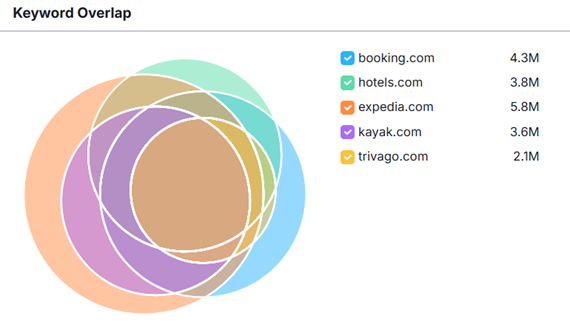Are you sleeping on your SEO? Martin Calvert, marketing director and Luke Kenna, senior market growth strategist of ICS Digital, argues why it's a partial answer to the needs of ROI-focused travel firms
_w=800_h=533.png?v=20230522122229)
Guest Post: SEO in 2025 - Google algorithm updates, the role of AI, and search engine ranking growth
If there’s one anxiety that seems to cut across almost all travel and tourism firms, it is the need to maximise PAX numbers.
We all know that you can’t sell yesterday’s hotel room/flight ticket/cruise cabin and so on today - and that small differences in capacity % can make a big difference to margins.
It’s of little surprise then that so many firms prioritise paid media and advertising campaigns to give bookings a boost and drive up traffic before it's too late.
However, while advertising is a crucial part of the marketing mix, the need to constantly ‘feed the machine’ means that margins are also impacted when click costs rise, or when aggregators and affiliates seek to take a greater slice of the pie.
Search engine optimisation offers some partial answers for ROI-focused travel firms as, while it can take more time to compete effectively, the scope to earn ‘free’ traffic on an ongoing basis can be more palatable compared to the inherent costs of advertising and affiliation.
In some ways SEO has become more straightforward than it used to be but the pace of Google updates and question of AI is an ever-present consideration.
In this short article, we’ll break down in plain English what these Google updates have meant for travel firms, the true opportunities presented by AI and how a cost-effective SEO strategy should take shape in 2025, based on our experience across the industry.
The state of play with Google
Google updates used to be fairly infrequent and, for a long time, it seemed like SEO specialists more or less knew the ‘direction of movement’. For the past few years we’ve seen dozens of updates - most usually related to what Google terms ‘Helpful Content’.
In short, these updates are about Google *trying* to uncover what is useful to users - who often have very specific queries, and desire quick answers.
This is partially why we see forum content being so prominent in search engine results these days as, rightly or wrongly, Google leans towards seeing this type of user-generated-content as a.) authentic and b.) helpful on a peer to peer basis.
Of course, in the travel sector there are no shortage of queries from highly interested audiences - from ‘dry’ questions about visas, travel restrictions, packing and practicalities, to more inspirational content around destinations, deals, experiences and aspirations.
The goal for travel brands of all stripes is now to try and capitalise on that search intent, in a way that fits with Google’s revised view of the world. So that means creating content that is:
- Genuinely useful and interesting
- More about the audience than the person/company supplying the information
- Demonstrating EEAT - Experience, Expertise, Authority and Trust factors
- As long or as short as it needs to be to answer the query
- In a format that is relevant to the query - be that text, video, infographic, audio or something else entirely
It’s worth nothing that few of us in the SEO industry feel that Google is doing a perfect job at discerning content that is genuinely helpful - but this is the way things are going.
To give a specific example of this, in March 2024, Google announced aggressive measures that shape how travel and tourism sites are ranked in 2025. The changes are based around two key areas:
- Improved quality ranking: ‘We’re making algorithmic enhancements to our core ranking systems to ensure we surface the most helpful information on the web and reduce unoriginal content in search results.’
- New and improved spam policies: ‘We’re updating our spam policies to keep the lowest-quality content out of Search, like expired websites repurposed as spam repositories by new owners and obituary spam.’
So - it’s important to prepare for a future where search engines get better and better at this, and surface results based on how they think real humans will respond.
The advantages of aggregators - and off-site SEO
As mentioned, one of the big challenges in the sector as a whole is the massive footprint that comparison sites, booking platforms and aggregators have.
Even between themselves, the competition is fierce. This image shows the overlap of the keywords a few of these brands are ranking for/battling for.

For independent brands to muscle in on this and earn direct traffic and bookings is tough. A more opportunistic approach is needed that puts the principle of Helpful Content at its heart.
One way to do that is to consider where you can win - it may be that some of these larger sites are better in some languages/regions than others, and so there is scope to be more helpful and worthy of ranking (and to earn more local backlinks) by having a more targeted approach to local audiences.
So - creative independent brands consider how to get ahead using multilingual content, or through more pointed/specific keyword targeting perhaps around very specific experiences and amenities rather than broad keyword terms like ‘cheap flights’ or ‘five star hotel Berlin’ and so on.



